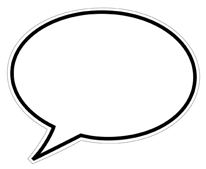 Yesterday I sat next to an Australian and Kenyan in a Kigali coffee shop and I was so jealous of their perfect accents. I have decided that Ugandan accents are a close third in the English-speaking accent awards, possibly edging up to take second or first if I ever spend more time around Australians and Kenyans and their accent's mystique wears off. Here are the top three expressions/intonations in Ugandan English that make me melt.They are being adopted by Rwandans learning English, which is now the official language taught in more and more schools. Keep in mind that one or two may just be the funny expressions of the few Ugandans I talk to the most. In which case, everyone should adopt them anyway.
Yesterday I sat next to an Australian and Kenyan in a Kigali coffee shop and I was so jealous of their perfect accents. I have decided that Ugandan accents are a close third in the English-speaking accent awards, possibly edging up to take second or first if I ever spend more time around Australians and Kenyans and their accent's mystique wears off. Here are the top three expressions/intonations in Ugandan English that make me melt.They are being adopted by Rwandans learning English, which is now the official language taught in more and more schools. Keep in mind that one or two may just be the funny expressions of the few Ugandans I talk to the most. In which case, everyone should adopt them anyway. 1) Are you sloping/going to slope? = Are you going down? (like when you are on the top of the hill, which happens a lot in Rwanda)
2) By the way - but said like by the way. But with "by" in a sort of sing-songy way, said at a higher pitch but with less emphasis than the "way." It's hard to explain, but it's fabulous. And used in debate speeches all the time, adding little musical touches to speeches.
3) "So" as interchangeable with "very" both in meaning and in intonation. This one's tricky to explain in written word. Usually when Americans are speaking and want "so" to mean "very" we change the way we say "so" to signify that we are not using it as a comparison. So we say, for example, "he was sooooooo handsome!" Rwandans/Ugandans say the "so" with a pitch going up towards the end, not so different than we would say "so" when we want to use it as a comparison, as in "he was so handsome all the girls fell in love with him." So when someone says, "The budget is so high" I keep on waiting for the dreaded, "...that we can't afford it." And that never comes, because the speaker merely wants to point out that the budget is very high, and I can relax.
4) "You people" - this one doesn't really count, because a lot of countries do this, when people really want to signify that they are speaking to more than one person, which you can't do in English. It sounds so offensive when I first hear it - it's like, what do you mean "you people"? But then I just exchange it in my head with "you" meant to refer to many people, and I relax.
5) "Me, I" as in "Me, I like ice cream." I think this is mostly Rwandan, because in Kinyarwanda you say "Me, I" rather than just "I." But if any of you can recall Sesame Street puppets or Barney, a lot of kids shows have fictional talking fluffy monsters or dinosaurs also say, "Me, I..." and so when I hear the students say it, I kind of subconsciously go, "awwww."
6) Ok, this one has nothing to do with English, and isn't exactly charming, but: the use of the word "Mzungu" for everyone who has slightly lighter skin, and not just white people. I used to think that when people were saying "mzungu" they were talking about me, but I slowly learned that when just want to refer to someone in the room, and that someone is Rwandan but has slightly lighter skin but no other particularly unique characteristics, because they're boring dressers or something, some people might say "mzungu" the same way we would say, "the guy with brown hair." I am not sure how common this is, because it feels really rude to jump into people's conversations all the time and ask who they are talking about, but I've found this to be the case a few times.
7) "Stapling machine" for stapler. I like this one, because I imagine a massive, industrial machine that fills up a whole room and stables lots and lots of papers at once.
There is always the question of how much to correct students. The above are expressions that don't really need correcting in spoken English, because it's perfectly clear what the intention is, and is more or less just a product of the local culture that jazzes up, rather than messes up, the English. Same for fiction writing. In some writing, through, it's another story: when people apply for jobs, and the decision maker for a job is not from East Africa, it may look less professional. So I tell students to keep talking as they do, but to make changes when writing anything meant to be professional. But it's all a game, really - the intentions are clear enough either way, it's just a matter of sending the signal of professionalism.
nice post love reading it.
ReplyDeleteWomens Leather Coats